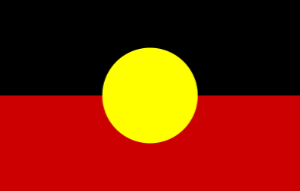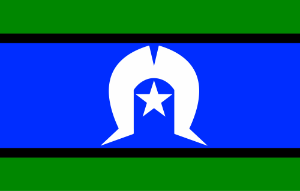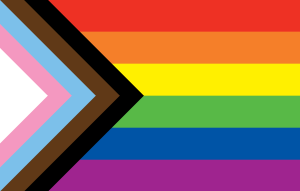Holly’s Story
Holly came to the National Centre for Childhood Grief after the sudden death of her dad Marcus in 2017. Holly and her mum Cheryl recently shared their story of Marcus’ death, their experiences at the NCCG and the unexpected gifts which came to their family after this tragedy.
Holly wrote:
“Hi. I’m Holly. My dad is Marcus.
I’ve learned to say… ‘is’.
Saying ‘is’ helps keep his memory alive and I find so much comfort in that. So I’d like to tell you about my dad and what he means to me now.
My dad Marcus died from heart failure when he was 44. I was 10 years old.
Dad was a stay-at-home dad.
He was the most playful, generous and kindest person ever. He was goofy so we would joke around and always had fun – two peas in a pod.
He encouraged me to get into sport and was a great coach. One of the main things we did together was ice-skating. We would skate for hours and hours, there are so many photos of us skating, falling over and giggling at the ice rink.
He was my best friend.
A few months after Dad died, I felt so alone. I thought no one else in the world knew what I was going through.
That’s when mum found the National Centre for Childhood Grief (NCCG).”
Coming to the NCCG
Holly started individual counselling with NCCG Children’s Counsellor Lil, a few months after the sudden death of her dad Marcus.
All clients at the centre begin with individual counselling so that the counsellors can get to know each person and understand their situation before any other programs are considered. Individual counselling helps them express and understand their feelings and provide strategies to help when they are experiencing intense feelings of grief.
After about six sessions, it was recommended that Holly joins Kids Group as a way to meet with other bereaved children and not feel so alone in her grief. Group counselling provides regular connection with other bereaved children where they can get to know and trust each other to share their feelings.
Holly remembers a lot about her time in Kids Group:
‘I remember one of my group first sessions, we were asked to write a letter to our parent who died.
The letter was to introduce everyone in the group to our parent and we wrote it as if they were still here with us.
We learned that memories keep the person alive, and if we can keep those memories strong, our minds will help us accept it.
All these years later I still introduce my dad as… ‘His name is Marcus’ it’s just one of the tools I learned at the NCCG that has helped me manage my grief.
Learning to keep my dad with me through my memories was the first gift from the NCCG, their support made me feel like I was wrapped in a blanket.’
Unexpected gifts
Holly wrote of how she worked through the pain and shock of her dad’s death and found an unexpected gift waiting for her. Holly said:
‘So much has changed since the day my dad died. Especially the relationship I have with my mum.
Dad was the stay-at-home parent, while mum had a very demanding job, that didn’t leave her much time to balance home life.
When dad died, there were just the two of us in the house, and through the support of the NCCG we learned not to isolate ourselves in sadness, instead we were able to work through the pain together.
And she’s truly become one of my best friends.
Mum and I both went to the NCCG for counselling, and we went to the family camp together.
This support and guidance gave us both so much.
The great thing about group counselling was that death was normalised, it wasn’t this humongous things we all had to carry around, it’s okay to cry, it’s okay to share your emotions. This made it less scary to talk about it to other people outside of the group, because it wasn’t, in my mind, such a horrifying topic to think about.
Through our experiences at the NCCG we’ve been able to understand our grief. Mum and I have come out the other side, having grown together.
We were talking about the football team that dad supported – their catch cry is, ‘Out of darknesss cometh light’, and we think that is true for us.’
Holly’s mum Cheryl also wanted to share her experience of her husband’s death, caring for Holly and finding the NCCG. Cheryl wrote:
‘When my husband Marcus died, my world changed overnight. I had a great husband; loving, warm, kind and funny. I worked hard to provide for my family, and he took care of Holly, but we conferred on all our decisions – it was a joint effort.
With Marcus’ sudden death a gaping hole was left in our lives and Holly and I were thrown together – retrospectively, a blessing in disguise.
After Marcus’ death I reflected on life and let go what I thought was important, which was striving to do well and provide for my family, I have learned to provide in a different way, which actually is what we need now.
I feel much happier and I wish Marcus could know the version of me today, because I think he’d really like it.
Over the years since Marcus died, Holly has learned to tune into her full range of emotions including the really challenging aspects.
She has learned to understand herself so much better and is probably the most compassionate person I know. She’s really quite remarkable in how empathetic she is and has developed this emotional maturity because of her experience. I think she’s almost been able to use it as a superpower.
This has been a formative time for us. With the support and guidance of the NCCG and being able to share our experience with others, we have grown to be different people.
Holly and I share a sense of compassion, we no longer worry about the small stuff and our relationship is stronger than it’s ever been, all unexpected gifts we cherish.’
The NCCG’s care services for bereaved families are focused on helping clients accommodate the death of their loved one into their life. The grief of bereavement is not something you ‘get over’, in the same way that you probably never stop loving the person who has died. Grief is a life-long and very individual journey, a roller-coaster ride of emotions, challenges, new discoveries and hope for the future. The NCCG’s counsellors help bereaved children and families understand their grief, develop ways to manage their natural emotions and other impacts of this trauma and build their resilience to lead their own full and happy lives.
After Marcus died, Holly and her mum Cheryl certainly found their resilience, a deep and subtle appreciation of the impact of Marcus’ death on their lives and also a wonderful capacity to build a great new chapter, supporting each other all along the way.



